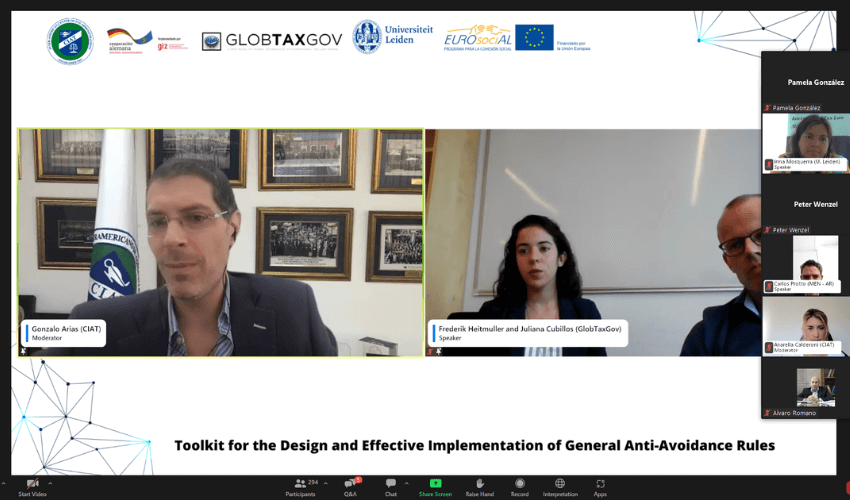By Gonzalo Arias and Anarella Calderoni
This post first appeared on CIAT’s website.
On June 23, 2022, a virtual activity was held where the Inter-American Center of Tax Administrations (CIAT), the Global Tax Governance team (GLOBTAXGOV) of the University of Leiden, the German Cooperation (GIZ) and the EUROsociAL+ Program presented the Toolkit for the design and effective implementation of domestic and international general anti-avoidance rules.
The purpose of this activity was to present and discuss with the participants, including tax administrations and ministries of finance, the opportunities offered by the toolkit for those countries that need didactic and practical material to evaluate improvements in the drafting of their anti-avoidance normative, to optimize its application or to develop it for the first time.
The management of this type of rules is a very complex issue, which in turn is associated with key processes of tax administrations, where there is significant room for improvement in many countries, especially in developing countries. Their proper management has a direct impact on compliance and on taxpayers’ trust in the tax administration’s actions. This and other related topics were discussed with experienced officials who provided recommendations in line with the toolkit.
We take this opportunity to invite you to consult the checklist contained in the Toolkit and its diagrams, specially designed to facilitate decision making on the subject matter of the Toolkit, which leads directly to its various contents: Link
We thank all the organizations that have allowed us to complete this new document, especially those who contributed technically with its elaboration from GLOBTAXGOV; Irma Mosquera, Juliana Cubillos and Frederik Heitmüller.

